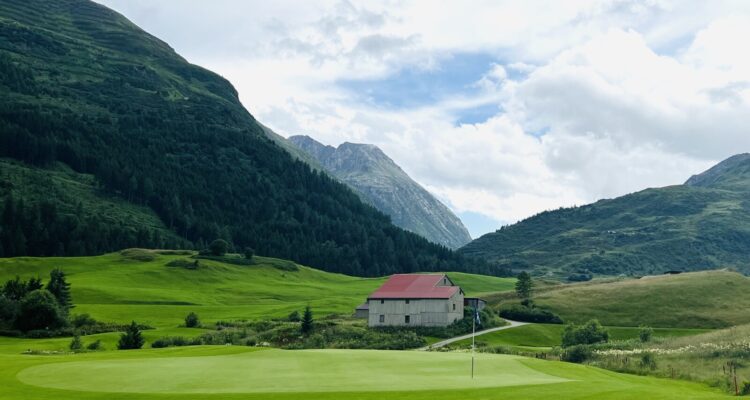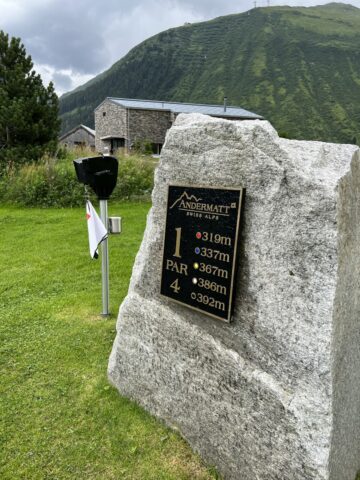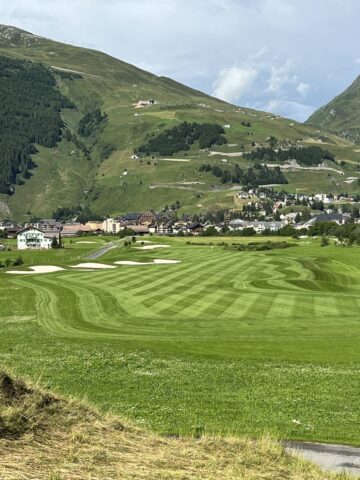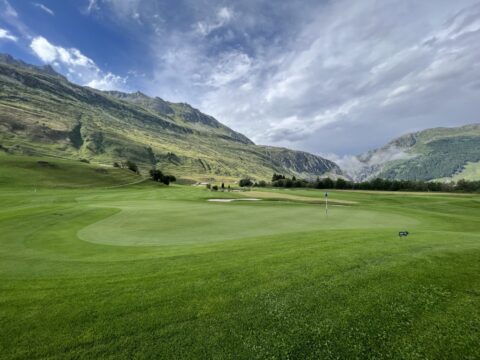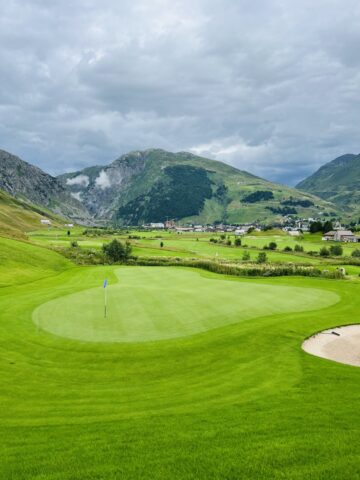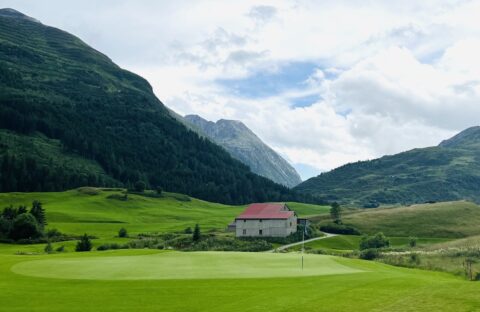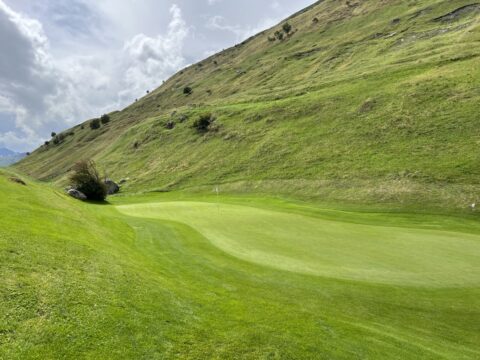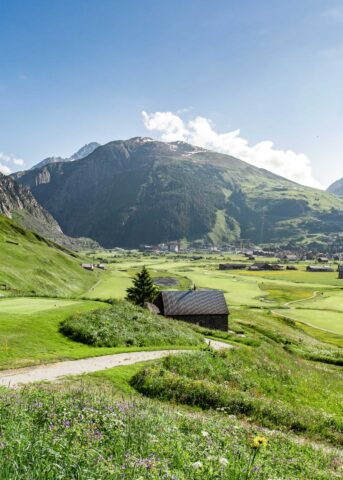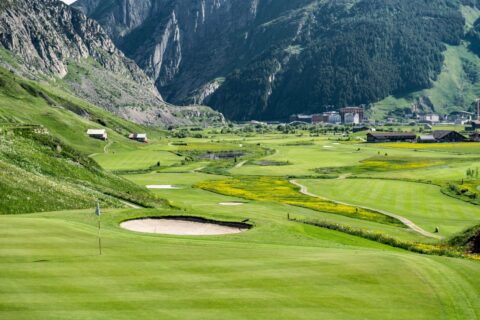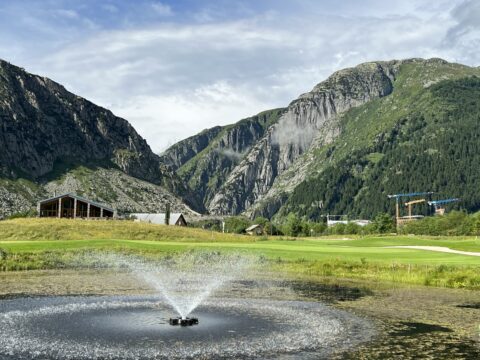Golf News Editor Nick Bayly travels to the charming Swiss town of Andermatt, where the opening of a championship golf course and the on-going construction of a major hotel and residential development has played a significant role in transforming the once sleepy Alpine village into a year-round leisure destination to rival some of the region’s most fashionable hotspots
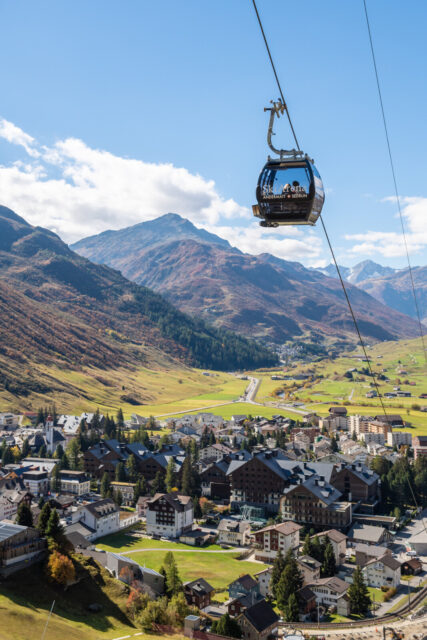
The Toblerone-style typography and eight-month-a-year snowfall found in the Swiss Alps dictates that it will never rival Spain’s Costa del Sol or Portugal’s Algarve when it comes to attracting the golfing hoards, but if you’re looking for stylish resorts, refined service, clean air, and are fit enough to climb the odd vertiginous fairway, then Alpine golf has plenty going for it.
Already boasting over 90 golf courses, Switzerland is no newcomer to the honourable game, with many of its established layouts having been round for over half a century. And while it has so far failed to produce a world-class player – apologies to 1995 Cannes Open winner André Bossert – this land-locked country is making a bold bid to offer something alternative to simply breathing in fresh air or hiking in the hills for its summer visitors.
Thus, it was with a great deal of interest that I boarded an EasyJet flight from Gatwick to begin my journey to Andermatt, a little-known resort in the southern Swiss Alps which first dipped its toes into the golf market with the opening of Andermatt Swiss Alps Golf Club in 2016.
After a 75-minute flight to Zurich, followed by a delightful 90-minute train journey skirting the edges of Lake Zurich, and a short transfer by car up the sort of hairpin-filled, winding road that one often sees on Top Gear, I found myself checking into the four-star Radisson Blu Reussen Hotel.
The Radisson forms part of a major hotel and residential development that is helping to breathe new life into a local economy which had previously relied on a Swiss Army training centre for which every male citizen has to pass through as part of their three-year national service duties. The base provided much of the employment in the area up until it was wound down in the mid-90s, and although the sound of new recruits jogging through the streets can still be heard, the town has succeeded in reinventing itself thanks to the investment of Samih Sawiris, a wealthy Egyptian businessman whose dream is to turn Andermatt into one of the world’s most talked-about mountain resorts.
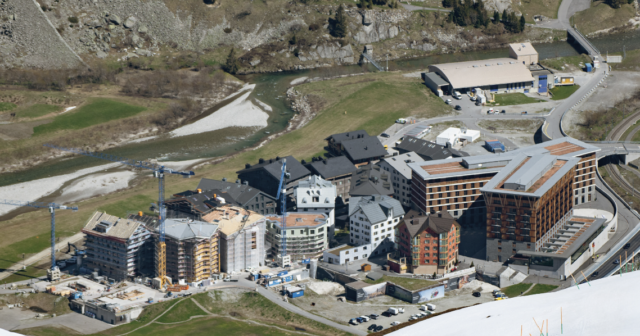
To date, his company, Andermatt Swiss Alps, has spent over £1 billion realising his vision, and the handful of cranes that tower above the village, and the myriad of new cable cars and ski lifts that dot the mountain sides in all directions, is a clear indication that his vision is very much taking shape.
The first stage of the transformation took place in 2013, with the opening of the 123-room Chedi Andermatt, one of the most dazzling five-star hotels in the Alps. It was followed in 2017 by the opening of the aforementioned 240-room Radisson Blu, which also boasts a state-of-the-art 650-seater concert hall and a conference centre. And it’s not hard to see where the money has been spent elsewhere, with a corner of the town filled with dozens of brand-new residential blocks – there are to be 42 when complete – whose luxury studios, spacious apartments and penthouses are selling like proverbial hotcakes long before they have been built.
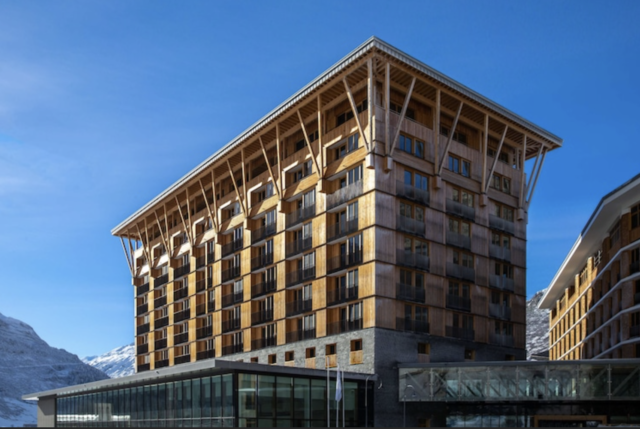
With restaurants, piazzas, cafés and retail outlets all included in the masterplan, there is every chance that the site will enjoy a more lived-in feel once fully complete, but for now it feels very much like a work in progress, albeit a mightily impressive one.
At least four more hotels are planned, one of which will be family-orientated, while another will be designed to cater for the golfers who Mr Sawiris hopes will be flocking to play the course that he had specially built to keep residents and visitors happy once the snow has melted.
Located just a short walk from the Radisson Blu, the golf course at Andermatt Swiss Alps has been open just over five years and occupies a stunning valley floor location where the lush, green fairways stretch across the landscape like a rumpled carpet. The golf season, like the ski season, is at the mercy of the climate in these parts, with the course generally open from early April and closing at the end of October, although the impact of global warming is helping to shift the balance in favour of more golfing time.
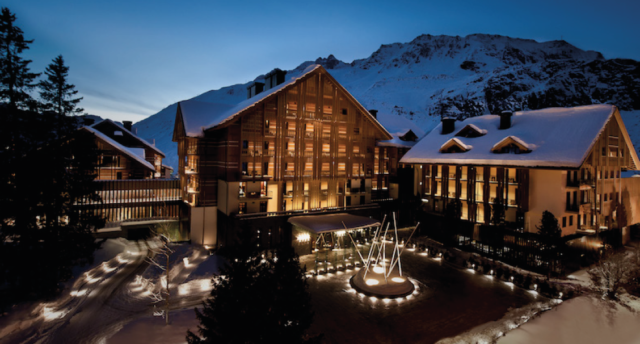
As previously mentioned, the bulk of the 18 holes are thankfully laid out on the bottom of a valley, rather than the fearsome slopes that rise up steeply on both sides, with only a few holes – most notably the stretch from the third to the sixth – requiring a bit of effort to progress up the fairways. At over 1,400m above sea level, the ball travels 10 per cent further than normal, which is handy for those playing off the back tees, which take the course close to 7,000 yards, although there is a choice of tees for less powerful hitters that reduce it to 5,800 yards at its shortest.
Highlight holes include the 7th and 14th, both of which play from hugely elevated tees, while the short par-three 13th runs along an escarpment and plays to a very small target. Water dominates the finish to both nine-hole loops, with lakes lining the fairways at the 9th and 18th, which share the same green so that golfers can play the long or short versions of the game.
Apart from the wind whistling down the valley, the other constant presence during a round here is the sound of bells ringing from the herds of cows that graze the slopes, many of whom will lift their heads briefly from the grass to watch your shot. Flora and fauna are positively encouraged at this GEO-certified venue, with butterflies, birds and all manner of wildflowers sharing the environment with golfers.
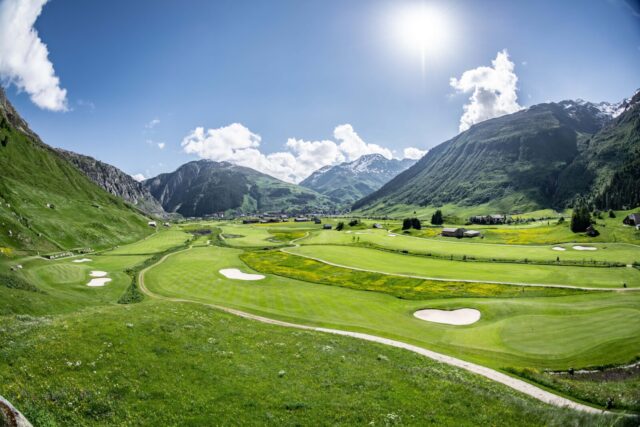
All in all, it’s an extremely entertaining golfing experience, where the quality of the design plays second fiddle – only by a small margin – to the stunning backdrop of the snow-capped mountains. The clubhouse – an impressive double-height chalet – offers a restaurant and a bar with fabulous views over the course and provides a wonderful spot to relax in before or after a round.
If that wasn’t enough of a golfing fix, a mile or so further up the valley is a wonderfully bonkers 9-hole course at Andermatt Realp, a rollercoaster of a layout that climbs dramatically up and down the side of the mountain, with stunning views from every angle give you just enough time to get your breath back before the next shot.
With a stream train chugging its way along the valley floor, and a group of classic Jaguars snaking down the windy Furka Pass road made famous by Sean Connery’s Aston Martin DB5 in Goldfinger, it really was the stuff of fairytales. All I needed was for Julie Andrews to spring out from behind a bush singing ‘The Hills Are Alive’ and the picture would have been complete. Oh, hang on a minute, that was in Austria….
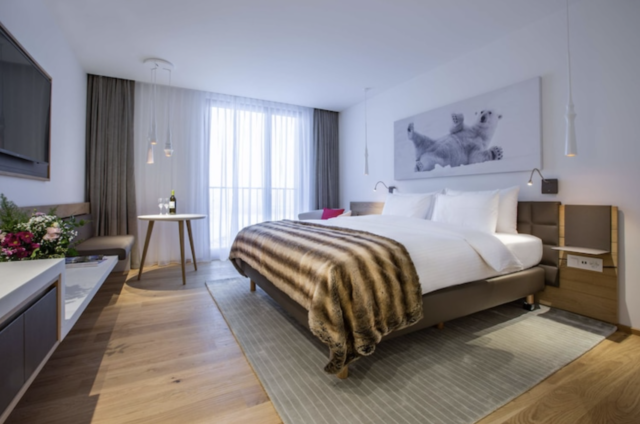
ANDERMATT STAY & PLAY GOLF PACKAGES
Two nights in a double room at the Radisson Blu Reussen, including breakfast, plus 18 holes at Andermatt Swiss Alps and 9 holes at Andermatt Realp costs from €295. For bookings, visit www.radissonhotels.com.
Walk-on green fees at Andermatt Swiss Alps start from CHF65 (£55) rising to CHF150 (£130) during peak times at weekends during the summer. For more details, visit www.andermatt-swissalps.ch/en/activities/golf.
For tee time bookings, click here.
For more information about the Andermatt Swiss Alps development and the properties for sale, visit www.andermatt-swissalps.ch.
THREE OTHER MUST-PLAY SWISS COURSES
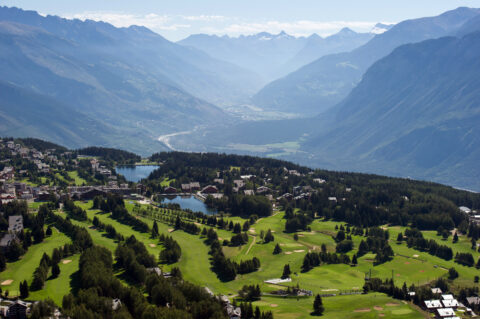
Crans Sur Sierre, Crans-Montana
One of the most spectacular venues on the European Tour – it hosts the Omega Masters every August – this stunning alpine resort 60 miles east of Geneva is as picturesque as they come. The Seve Ballesteros-designed course boasts a long list of memorable holes, including the jaw-dropping 7th, which looks down over the Rhone Valley, and the par-three 12th, which is surrounded by a natural amphitheatre.
Green Fee: £110, www.golfcrans.ch
Geneva Golf Club, Cologny
Located 20 minutes from Geneva, where Lake Geneva flows into the Rhone, lies one of Robert Trent Jones’ finest European courses. Host of the Rolex Trophy on the Challenge Tour, the layout is not long by modern standards, but its tree-lined holes are tricky to negotiate, with numerous doglegs to contend with, trees that obscure greens, and several lakes to carry. The panoramic views towards the Alps are worth the green fee alone.
Green Fee: £115, www.golfgeneve.ch
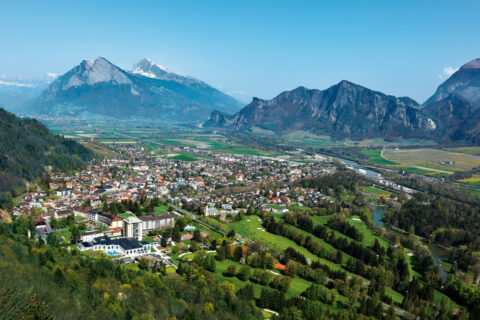
Bad Ragaz Golf Club, Bad Ragaz
Originally built as a 9-hole course in the 1920s, Bad Ragaz grew into a fully-fledged 18-hole course in the 1950s and has since turned into a 27-hole resort. The championship course, which has hosted the Swiss Senior Open since 1997, is situated on the floodplain of the River Rhein, and is a largely flat woodland layout played against the backdrop of the impressive mountains on both sides. The 5,707m course is short by modern standards, with low scores on offer for pros, although it still presents a good test for holiday golfers. Guests at the adjacent Grand Hotel Bad Ragaz benefit from reduced green fees and reserved tee times.
Green Fee: £110, www.golfclubragaz.ch



